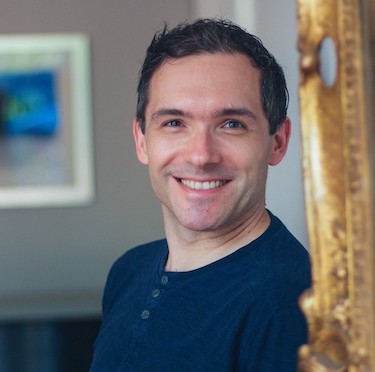
Zvony (Zvonimir) Nagy (pronounced /zvônimiːr nadj;/) is a Croatian-born American composer, scholar, performer and educator. His work extends into interdisciplinary contexts and perspectives on musical creativity in composition and performance with published scholarly and compositional research. Dr. Nagy has a proven record of internationally recognized creative and scholarly work and can provide a high standard of teaching. He earned a Doctor of Music degree from Northwestern University; he also trained in piano and organ performance at Texas Christian University, piano, and composition at the University of Zagreb-Academy of Music in Zagreb, Croatia, and at the École Normale de Musique de Paris “Alfred Cortot.” He teaches music at Weatherford College and Duquesne University.
As an organist and pianist, Nagy has performed as a soloist, chamber musician, and choral conductor throughout the United States and Europe. He has a repertoire that ranges from classical to contemporary music. He received the second prize in the César Franck/Olivier Messiaen International Organ Competition in Haarlem, the Netherlands. His piano and organ recordings are available at PARMA Recordings-Ravello Records, Albany Records, and MSR Classics. Nagy has served as director of sacred music at churches and cathedrals throughout the United States; he has an ongoing commitment to church music and leadership experience with different music programs. He serves as Director of Music and Worship at King of Glory Lutheran Church in Dallas, Texas.
Nagy’s music is published by Universal Edition (Vienna) and Paraclete Press (Boston). Recordings of his compositions are available from Ravello Records (Angelus: Works for Organ, 2018), Albany Records (Liquescence: Music for Ensembles, 2017), and MSR Classics (Vestiges: Music for Piano, 2014). Classical Music Review has called his music “hauntingly beautiful,” American Record Guide described his compositions as possessing “glacially slow, light ambiance to a simultaneously wild and dense eruption of sound.”
Nagy views the process of composition as an investigation into the structure of musical creativity. His compositions are informed by cognitive and computer sciences of music and are shaped by technology, spirituality, and social issues. His composition approach is interdisciplinary and centers on compositional morphologies that explore the creative dialogue between cognition and perception, conceptualization and contextualization, and tradition and innovation. Influenced by music technology, experimental, post-minimalist, sound art, and indie classical music, he fuses contemporary and alternative popular music styles. He combines computer-assisted processes for music composition and notation and self-referential and dynamic systems with more intuitive approaches to compositional techniques and procedures. As an improviser on organ and piano, he draws from experimental and historical improvisation practices, interactive media technologies, and interdisciplinary collaborations.
As a composer with diverse interests, Nagy has had great success having his work premiered in Europe and North and South America. Performances of his works range from multimedia art pieces, choral groups, and solo performers to new music ensembles and professional symphony orchestras and include works for concert, church, and installation performances. He is the recipient of composition awards and grants such as the first prize in the Cremona Musica Yamaha Disklavier Composition Competition (2019), The Pittsburgh Foundation and The Heinz Endowments Investing in Professional Artists Grant (2017-18), the Paluse Research Grant (2018-19), the Presidential Scholarship Award from Duquesne University (2013), the Seattle Symphony Composition Prize (2012), the Iron Composer Award (2011), the Swan Prize in Music Composition from the University of Minnesota (2011), the Karlins Award at Northwestern University (2008), and the Croatian Music Institute Award (2002). He has also written for and received commissions from performers and ensembles, such as the Seattle Symphony, musicians from the BBC Scottish Symphony Orchestra, the Mivos String Quartet, the Beo String Quartet, Chatter Ensemble, the Boston Choral Ensemble, Alia Musica Ensemble, Reed III Ensemble, Trio Jónio, Cleveland Contemporary Chamber Players, and JACK Quartet, among others.
As a scholar, Nagy’s research focuses on systematic musicology, creativity studies, and contemporary music and spirituality. He applies insights from embodied music cognition to the study, practice, and teaching of music. His monograph, entitled Embodiment of Musical Creativity: The Cognitive and Performative Causality of Musical Composition (Routledge, 2017, An Ashgate Book in the SEMPRE Series on Psychology of Music), offers an innovative look at the interdisciplinary nature of musical creativity. In the book, he investigated the psychological attributes of creative cognition, the associations of which become the foundation for understanding embodied creativity in music. In addition to exploring psychological mechanisms and functions linked to musical creativity, in the book, he also developed methodologies from humanistic and scientific disciplines to understand creativity as a fundamental property of human cognition, behavior, and culture. He is currently working on a new book project that explores the implications that meditated – composed, performed, improvised – sound has on the formation of ‘creative spaces’ on the embodied attributes and elements that inhabit these spaces and the experience of musicians and listeners extending those spaces.